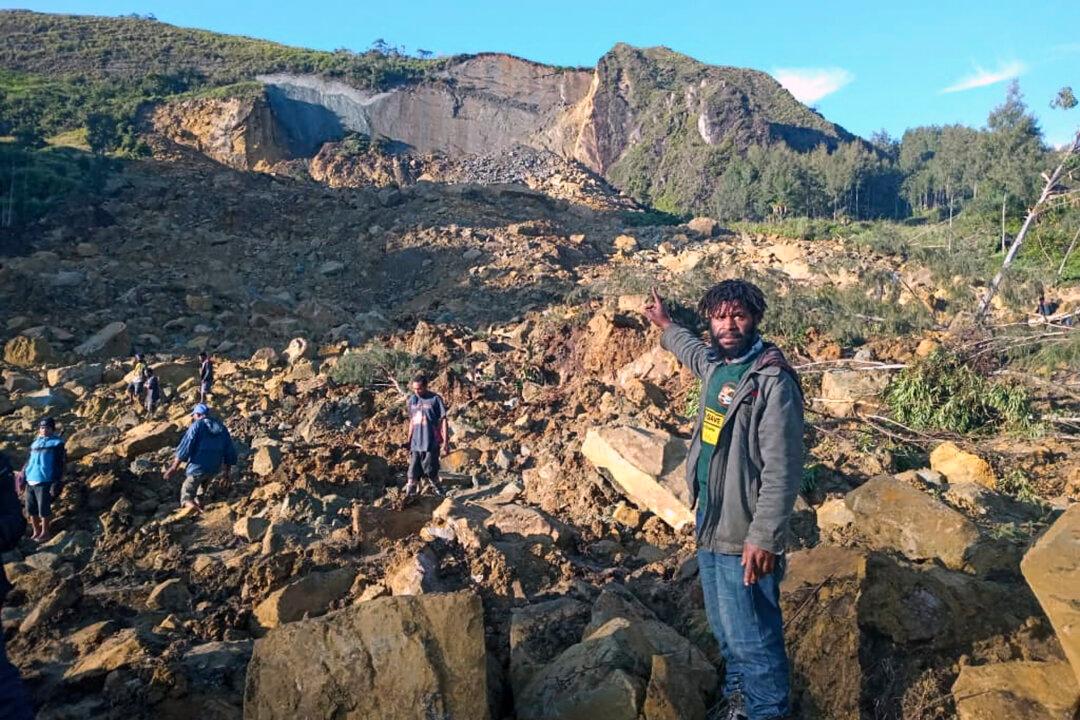A massive landslide that struck a remote area of Papua New Guinea may have buried as many as 2,000 people—well above an initial estimate of 500 and more than three times the United Nation’s (U.N.) estimate of 640.
The new figure comes from the PNG government, which has formally asked the international community for assistance.





